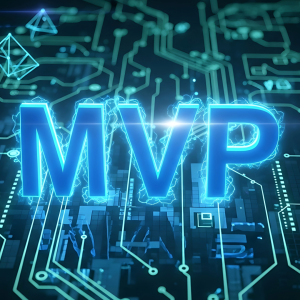The gig economy has reshaped how we think about work. Freelancers, part-timers, and on-demand professionals now make up a significant portion of the global workforce — and this number continues to grow. But there’s a new force accelerating this transformation: artificial intelligence (AI).
AI is no longer just powering chatbots or recommendation engines. It’s fundamentally changing how freelancers are hired, matched with clients, and evaluated. With both opportunities and challenges ahead, the future of gig work may look very different from what we know today.
Opportunities: Smarter, Faster, Fairer
One of AI’s greatest strengths is its ability to analyze massive amounts of data and make decisions quickly. In the gig economy, this translates into several key benefits:
- AI-Powered Matching: Algorithms can pair freelancers with jobs that best suit their skills, experience, and preferences. This reduces wasted time scrolling through endless listings and helps clients find the right talent faster.
- Automated Admin Work: From invoicing to scheduling, AI tools are cutting down on repetitive tasks that often eat into a freelancer’s billable hours.
- Better Discovery: By analyzing a freelancer’s portfolio and reviews, AI can suggest opportunities they might otherwise miss.
According to the World Economic Forum, AI-driven hiring tools can significantly improve efficiency and reduce bias in recruitment. For freelancers, this means more chances to get matched with the right clients, not just the loudest ones.
Risks: Job Displacement & Algorithmic Control
But not all outcomes are positive. As AI continues to evolve, risks emerge:
- Automation of Roles: Certain freelance tasks — especially in fields like data entry, transcription, or basic design — are increasingly automated, leading to potential job loss.
- Algorithmic Bias: While AI can reduce human bias, poorly designed algorithms can create new inequities, unfairly ranking or filtering out freelancers.
- Reduced Job Security: Gig workers already face uncertainty. If AI platforms prioritize efficiency over transparency, freelancers may feel like they’re competing with the system, not just other professionals.
As MIT Technology Review points out, the challenge isn’t just AI taking jobs — it’s how algorithms may quietly decide who gets work and who doesn’t.
Striking the Balance: The Human + AI Partnership
The future of gig work isn’t about AI replacing humans; it’s about AI enhancing how humans work. Platforms that embrace AI + human oversight will create healthier, more transparent systems where freelancers thrive, clients succeed, and opportunities are fairly distributed.
How MPS Supports the Future of Work
At MPS (My Premium Service), we believe technology should empower, not replace, freelancers. That’s why our platform integrates smart matching tools to:
- 🔍 Connect freelancers with the right opportunities quickly and fairly.
- ⚡ Help clients find verified talent more efficiently.
- 🤝 Build trust with transparent systems that put people first.
Our mission is simple: leverage AI to make the gig economy faster, fairer, and more human.
✅ The gig economy is changing — but with the right balance of AI innovation and human trust, it can be a future where everyone wins. Explore opportunities with MPS and experience what the next era of freelance work looks like.






